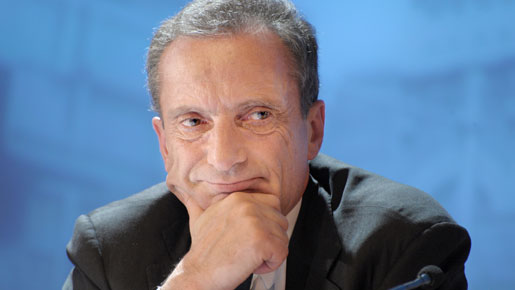
In September Henri Proglio was unveiled as the new CEO of state-controlled power group EDF, the world’s biggest nuclear operator, replacing Pierre Gadonneix. Although the move has been ratified by Nicolas Sarkozy – the French state is EDF’s main shareholder, with a stake of 84 percent – some details on appointment remain unresolved. Proglio is a lifetime veteran of Veolia, a multinational France based company operating in the fields of water, waste management and energy. As part of the move he has demanded that Veolia be safeguarded from a takeover by EDF and that he remain in a senior role.
The Veolia board of directors must now consider a restructuring that will allow Proglio to retain his involvement in the company. They will also have to weigh the potential for conflicts of interest and the risk that the French state will have a greater say in the running of this private company. Put simply, the board must decide whether it should split into a supervisory and executive board or remain a single entity. A dual board would allow Proglio to remain as non-executive chairman with a chief executive appointed from within the company, whereas a single board would mean a lesser role for Proglio, who in any case is likely to remain a director.
Whatever the outcome, if the move goes ahead, Proglio will have to take a substantial pay cut. At Veolia his annual salary was €2.5m whereas his predecessor at EDF earned a comparatively austere €1m last year.
Proglio, 60, is the son of fruit and vegetable sellers in the chic resort town of Antibes on the French Riviera and is a graduate of the elite HEC business school. He will take up his new role in late November. The French government has charged him with several key tasks at EDF: to reduce record levels of debt through disposals; to improve the efficiency of the 58 French reactors following a year of industrial action; to consolidate international operations after costly expansion; and to manage the opening up of the French power market to more competition, while financing a multi-billion euro investment programme in the domestic nuclear fleet.
Working through the issues
Scratching beneath the surface of these demands, there are a number of underlying factors that Proglio should consider. In terms of debt, it should be noted that EDF’s borrowing levels soared to €36.8bn in H1 2009, from €24.5bn at end 2008 and €16.3bn at the end of 2007. One of the principle reasons for this dramatic hike is the group’s €10.8bn acquisition of British Energy in January 2009. With a debt rating at A+ after a downgrade from AA- following the purchase of British Energy and part of Constellation Energy, EDF is working on reducing the debt level and plans to slash debt by at least €5bn by the end of 2010 through divestments, potentially including the power grid in Britain and a 20 percent stake in British Energy to Centrica.
The debt in France is also set to rise and the group faces investments in modernising its domestic network. In terms of it’s acquisitive policy, the bid for British Energy and a stake in the nuclear activities of Constellation in the US marked a bold move in the global nuclear energy sector at a time when more governments are turning more to atomic power because of its low CO2 emissions. The British Energy deal followed an unsuccessful attempt to enter the South American market, which was abandoned in 2004 following significant losses. In spite of this failure, EDF remains intent on expanding its core business model to include gas, and to this means is currently looking into the South Stream gas pipeline – an area historically the domain of fellow state-controlled energy supplier, Gaz de France, now a part of GDF Suez.
EDF is facing some complicated issues in terms of sourcing nuclear power. The French nuclear engineering group Areva is currently building a new generation reactor in northern France, which is due to be opened in 2012. However, the project is technically complicated and Areva has encountered problems in launching a similar generator in Finland. In terms of the nuclear strategy of EDF – and indeed that of France as a whole – it is critical to be able to open new nuclear power plants in the near future.
Notwithstanding his continuing interests in Veolia, at EDF Proglio finds himself in a difficult position. The ongoing global nuclear versus hydrocarbon debate will continue to snowball, and in spite of recent mistrust of Russian energy sources and a concerted European drive to move away from fossil fuels, atomic energy isn’t exactly going to be flavour of the month anytime soon.
Proglio’s short-term objectives, set by the EDF board, are varied and the bar is high. A reduction of the company’s debt burden can only be achieved through divestment of its recent loss-making acquisitions. But at the same time, EDF’s ambition to expand and diversify into new markets and new fields of energy supply may pose a genuinely vexing quandary for the new CEO, even if new forms of energy are essential. This, he must face up to.

